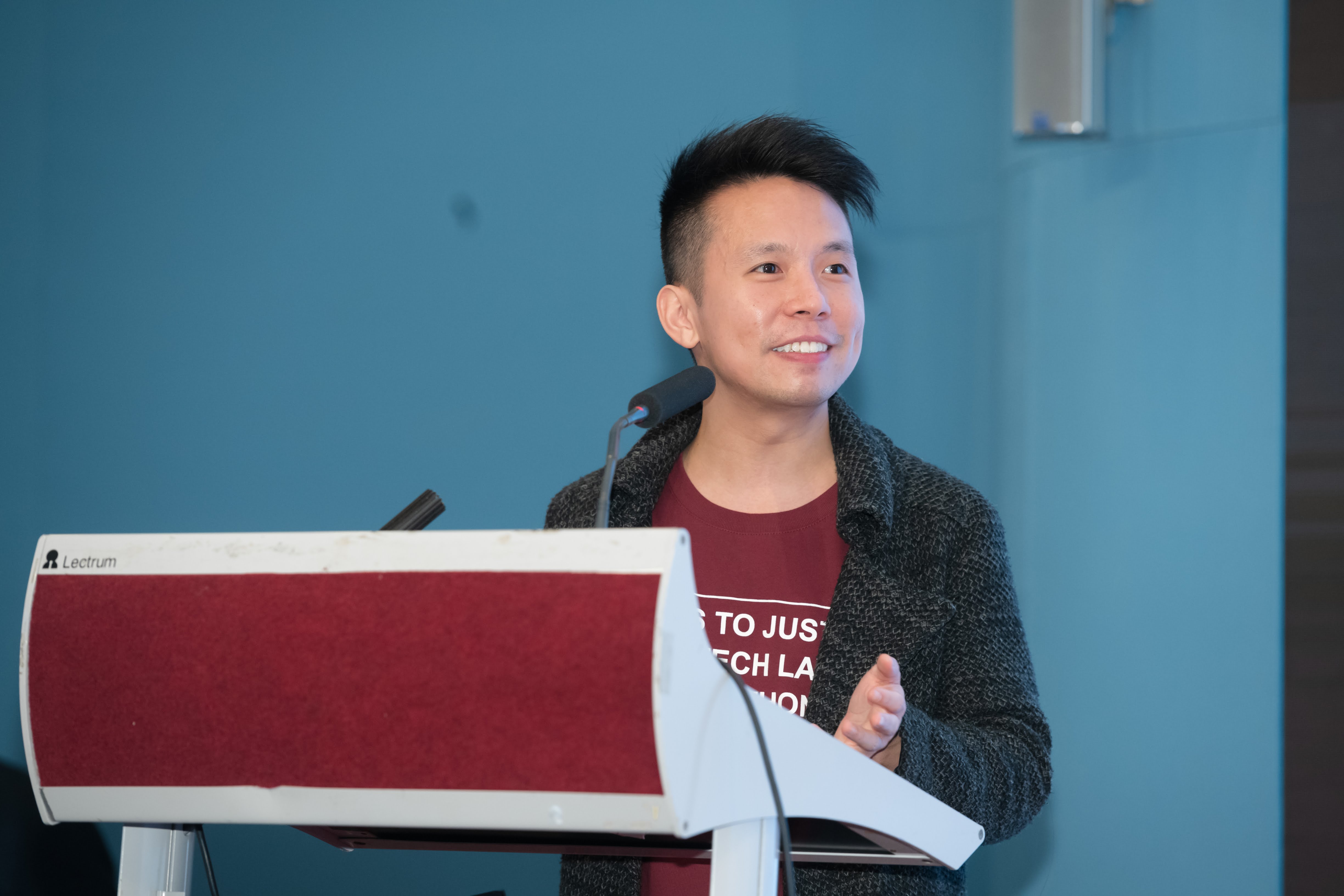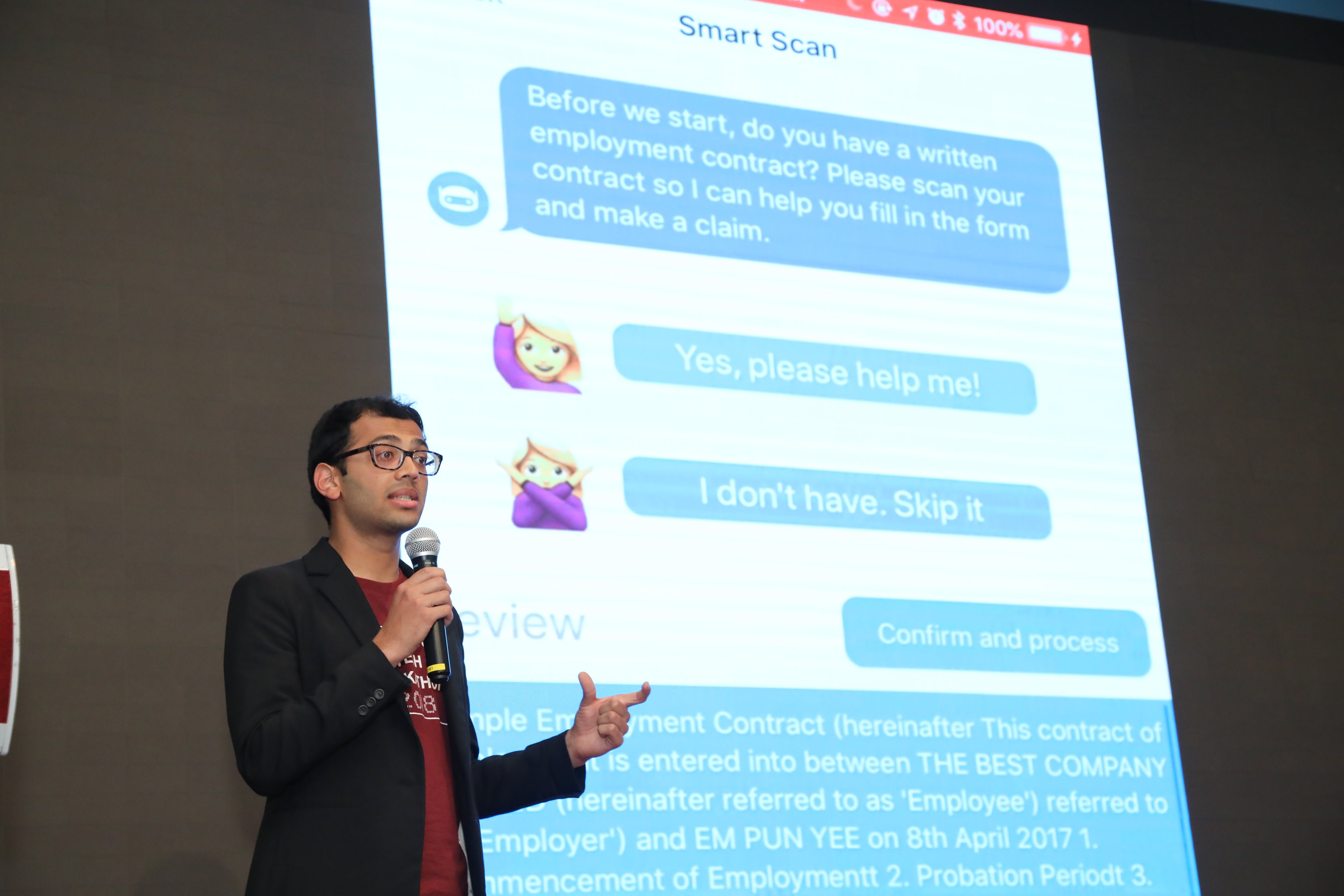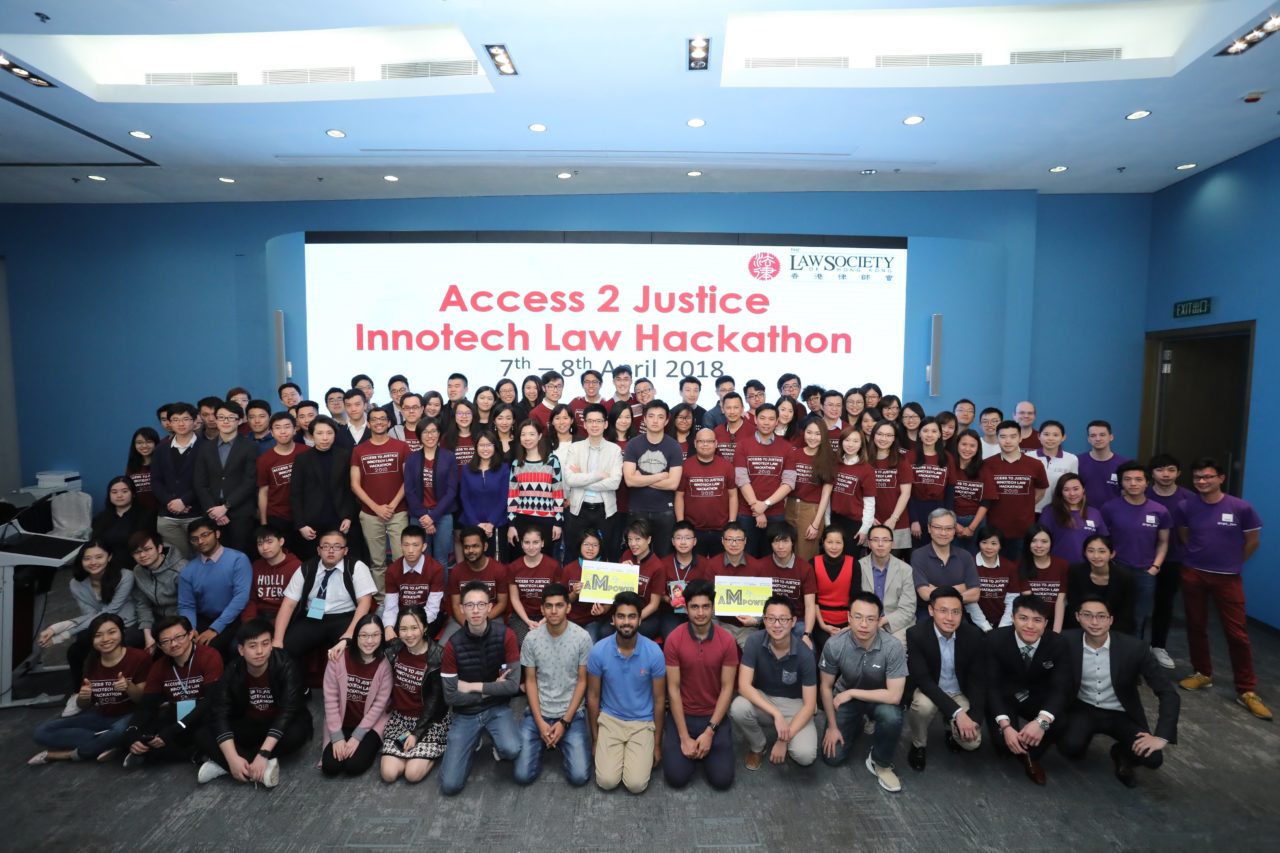Interview by Jennifer Lim Wei Zhen & Amelia Chew
In this edition of LawTech.Asia’s Quick Chats series, we bring some updates from the region: Hong Kong. We spoke with Mr Sebastian Ko, concerning the recently concluded Innotech Access to Justice Hackathon (“A2J Hackathon”) in Hong Kong. Sebastian was convenor of the A2J Hackathon, and is also a Member of the Law Society of Hong Kong’s Innotech Committee.
The A2J Hackathon took place from 7-8 April 2018, and featured 25 solutions ranging from chatbots to matching platforms to document assemblers.
There were other legaltech hackathons that took place in Hong Kong earlier this year, such as the LegalTech and RegTech Hackathon that was part of the Global Legal Hackathon. How did the A2J Hackathon differentiate itself?
With over 120 participants and over 60 mentors, guests and supporters, the A2J Hackathon should be the largest legaltech hackathon in HK so far. It’s other differentiating point is that it was the first hackathon in Asia to be led and organised by a professional regulator, and the first “law and tech” hackathon to focus specifically on enhancing the public’s access to justice.
What was the impetus behind the A2J Hackathon?
The idea for the A2J Hackathon is that technology can play a big role to help the general public better access justice and legal services. It’s not just about making delivery of legal services more efficient in the Business to Consumer (B2C) market, or about reducing transaction costs and regulatory burdens. While the underlying issues might overlap and serve similar goals, looking at how technology can serve the law through the lens of access to justice offer unique perspectives on innovation in the law. It requires, for example, a disciplined focus on designing for user needs and behaviour and adopting the tenets of design thinking.

Sebastian Ko speaking at the Access 2 Justice Innotech Law Hackathon (“A2J Hackathon”) that took place in April 2018 (Image credits: The Law Society of Hong Kong)
What were some of the more interesting ideas that were pitched during the Hackathon?
The winning idea was a combined document assembler and scheduler platform for parties to the Small Claims Tribunal.
The other types of solutions pitched during the Hackathon ranged from:
- Chatbots that provided interactive FAQs (e.g. for personal injury and family law matters),
- Matching platforms between clients and legal advisors (generally and specific to certain practice areas),
- Document assemblers that guided users to complete legal documents for different community justice services, including the Legal Aid Department and the Free Legal Advice Scheme of the Duty Lawyer Service,
- Schedulers/Calendars to track timelines of legal proceedings,
- Educational games (to inform the public about employment law and other areas)
It is impressive that the participants managed to come up with a wide range of technical solutions. What do you think contributed to this success?
When admitting participants, we gave preference to teams that had a mix of lawyers and coders to ensure that each team could create working demos. We had a good demographic mix of law, engineering and business students (approx. 30%), lawyers (approx. 40%) and software engineers (approx. 30%). Encouragingly, the senior participants, e.g. practitioners at partnership level in law firms, joined in because they have always had a passion for innovation, and were champions of implementing innovative initiatives themselves in their organisations.
Given that some participants had no prior legal knowledge, and others had no prior coding experience, It was important to us at the outset that the event had to be inclusive. We provided two workshops and online materials on basic access to justice topics and training on certain developer tools so there is a legal and tech knowledge baseline for all individuals.

Image credits: The Law Society of Hong Kong
This approach allowed all team members to contribute regardless of their backgrounds. They could communicate with each other for the purposes of designing and developing interdisciplinary solutions, and effectively leverage on each other’s domain experience.
Will there be follow-up support for the participating teams to execute these ideas?
We will be supporting teams that are willing and able to further develop their solutions for actual implementation.
We also conducted a survey amongst participants to understand the areas of improvement. We organised a post-Hack meetup on 21 June 2018 to share the results, achievements, and media coverage and write-ups. At the meetup, 10 teams returned to share updates on the continued development of their solutions, take aways, and talent and resource needs to move to next steps. We also invited government agencies, law firms and community partners who did not attend the Hackathon to attend the meetup and meet the teams, hoping that we can encourage new partnerships to further develop the solutions.
As part of our follow-up initiatives, we will be hosting meetups and workshops in the next few months, where promising teams are given opportunities to pitch to targeted user groups such as community organisations, and the latter groups will in turn provide feedback during small-group pitching sessions. The Hackathon organising committee will be working to invite these organisations to facilitate the matching process and provide additional support to the teams that are interested in continuing to develop their ideas.

Image credits: The Law Society of Hong Kong
Having seen the different solutions, what do you think should be the direction legal tech in the field of Access to Justice should grow towards?
This is a big question that demands big answers. We need sustained conversations among the users, adopting organisations, developers, and other stakeholders about legaltech in the field of access to justice, and encourage interdisciplinary understandings: which types of problems lend well to legaltech solutions and which do not.
Legaltech is meant to be a vehicle to bring about great change, not necessarily the change itself. But if we are not using this vehicle because we don’t know how, then neither are we effectively using the resources we have in our communities nor could we maximise the potential for positive impact in access to justice in whichever domains of law we engage in. So, we need more events like the Hackathon as well as initiatives in organisations engaging in access to justice work to explore innovative ideas, and hopefully we can be collaborating across borders to do so.
If you’re interested in learning more about the A2J Hackathon, please read Sebastian’s post-hackathon piece on Asian Legal Business.
